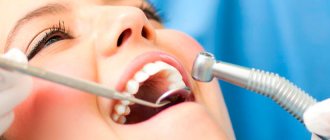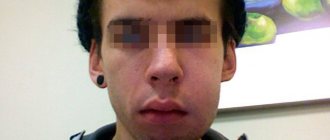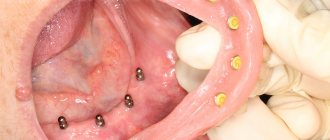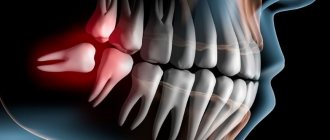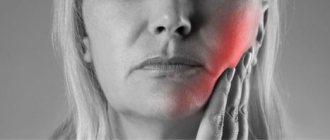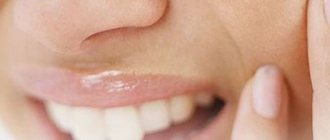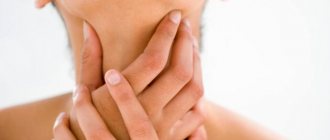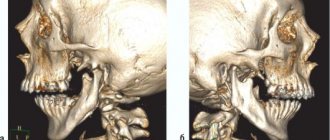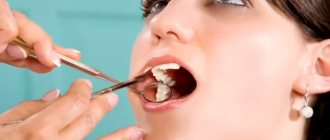Sleep is associated with a state of rest. However, at night people often make a variety of sounds that do not fit this definition at all. They can slurp in their sleep, grind their teeth and even talk. While the sleeper is resting, people around him may experience serious discomfort. Situations become aggravated when you have to stay in the same room for a certain period, such as the whole night.
One part of doctors explains this behavior by the characteristics of the body, while the other considers chewing in sleep a bad habit. Why does a person slurp in his sleep, is it possible to get rid of unpleasant sounds - this is worth understanding in more detail.
Reasons for chewing in your sleep
Chewing in sleep or grinding teeth has its own medical term - bruxism. During sleep, a person's masticatory muscles reflexively contract, so he makes sounds similar to grinding or chewing. As a rule, such sounds are short-lived (a few seconds) and can be repeated several times during the night. It has been noted that the autonomic nervous system is also triggered by these movements. So, in a person suffering from bruxism, during the next episode of teeth grinding, the heart rate increases and the blood pressure level increases. Until now, it has not been possible to reliably identify a reason that would explain this phenomenon. One thing is clear - bruxism is not associated with the presence of worms in the human body, as has always been believed. Doctors draw a parallel with the presence of other changes during sleep, for example, snoring, enuresis, the presence of nightmares and sleepwalking.
Medical rationale
When a child slurps in his sleep, it seems that he was not fed before being put to bed. There are several explanations for the origin of the sounds made:
Experts do not associate such phenomena with a lack of diet or pleasant dreams about tasty food. Often, smacking your lips in a dream is due to the fact that the sleeper's mouth is slightly open. With this type of breathing, the mucous membranes dry out. Reflexively, slurping movements are made to moisten the surface of the oral cavity. Also, a provoking factor may be congestion or a crooked nasal septum, which forces the sleeper to breathe through the mouth.
- When it comes to babies, most professionals agree that newborns intuitively seek out their mother's breast. After all, it is not just a source of nutrition for babies, but also a prerequisite for harmonious development.
- Chomping sounds and grinding of teeth during sleep are called bruxism by doctors. It is noted as a result of reflex muscle contraction. The sounds produced are short-term in nature. Unlike snoring, they stop without additional external influence.
Scientists have found that the autonomic system responds to slurping movements. During the next episode, the sleeper’s blood pressure rises and the pulse quickens.
Treatment
Bruxism, slurping and smacking are not pathologies as such. Therefore, there is no one surefire recipe for treating strange sounds that a person makes during sleep. In most cases, such phenomena disturb those around them, although the person himself may wake up more than once due to his own grinding of teeth. The main danger of this condition is damage to teeth and abrasion of enamel. General recommendations for solving the problem include: • avoiding stressful situations; • relaxing gymnastics or yoga before bed; • ventilation of the room; • treatment of chronic diseases of the nasal cavity that impair free breathing; • relaxing bath before bed; • an evening walk; • comfortable bed. If you cannot cope with this condition yourself, you should seek help from a doctor. Among the specialists who can help you, it is worth highlighting two – a psychologist and a neurologist. Because Most often, such phenomena may be associated with stress factors or other mental disorders; these specialists will be able to help solve your problem. In addition, such people should more often contact their dentists to assess the damage to their teeth and, if necessary, make a special mouthguard to protect their teeth, which must be worn at night.
Symptoms of laryngopharyngeal reflux
- Dysphonia or hoarseness;
- cough;
- feeling of a lump in the throat;
- discomfort and feeling of mucus in the throat;
- dysphagia (impaired swallowing).
Some researchers believe that chronic irritation of the larynx may lead to the development of carcinoma in patients who do not drink alcohol or smoke, although there is no data to support this.
Symptoms characteristic of LPR may also be caused by the following conditions:
- postnasal drip;
- allergic rhinitis;
- vasomotor rhinitis;
- upper respiratory tract infections;
- habitual coughing;
- use of tobacco or alcohol;
- excessive use of voice;
- changes in temperature or climate;
- emotional problems;
- environmental irritants;
- vagal neuropathy.
Why does a person chew in a dream?
Both chewing in your sleep and grinding your teeth are bruxism. This term comes from the Greek word brychein. Literally, this, in fact, means grinding one’s teeth, i.e. paroxysmal contractions of the masticatory muscles, which are accompanied by compression of the upper and lower jaws, as well as grinding of teeth, chewing movements and unpleasant creaking. Interestingly, this disease can occur in both children and adults.
What is the difference between nocturnal epileptic seizures and parasomnias?
- parasomnias often occur in early childhood (from 1-3 years to 12 years), and nocturnal epileptic seizures develop later and can begin at any age;
- parasomnias are longer lasting (on average duration is 5-30 minutes) compared to nocturnal epileptic attacks (on average duration is 20 seconds - 5 minutes);
- parasomnias are more variable, epileptic seizures during sleep are more stereotypical (similar to each other);
- parasomnias gradually cease on their own or with sedative therapy by the age of 12; epileptic seizures during sleep respond only to antiepileptic therapy;
- After parasomnias, daytime drowsiness is rarely observed, and after a night attack of epilepsy, lethargy, drowsiness, and “weakness.”
Why do people chew in their sleep?
It is worth noting that bruxism is a fairly common phenomenon. Interestingly, people suffering from this disease may chew and grind their teeth several times in one night. Until now, official science cannot explain the reasons for the occurrence of this strange phenomenon in humans. The fact is that scientists do not find any personality changes among “lovers” of chewing in their sleep.
Typically, several episodes of bruxism occur during sleep. They last no more than 15 seconds. If their duration is longer, this can lead to damage to the teeth and surrounding soft tissues.
However, doctors now associate sleep chewing with other manifestations of sleep depth dysregulation. These, of course, include snoring, nightmares, somnambulism (sleepwalking) and nocturnal enuresis (urinary incontinence).
It is curious that even in the 21st century, the popular point of view of the origin of bruxism does not lose its popularity. Today, as always, there is a widespread belief among people that chewing and grinding teeth in sleep is evidence of the appearance of worms in the sleeping body. However, scientists have not yet found significant confirmation of this! In addition, worms are no more common among “lovers” of night chewers than among other people who do not grind their teeth in their sleep.
Frequently asked questions and answers
- The child clicks in his sleep, reasons? There are several reasons. This could be worms, lack of fresh air in the room, lack of vitamins, etc. If the clicking noise repeats frequently, you should show the child to a doctor. You should also check with relatives whether there were similar problems with any of the family members. Sometimes the reason is a violation of physical or mental health. In this case, self-medication or the use of “grandmother’s remedies” can only harm the baby. A medical examination is necessary. Check the level of hemoglobin, potassium, vitamins, blood density.
- A child makes strange sounds in his sleep, why? Parents often believe that when a child makes strange, incomprehensible sounds in a dream, these are signs of some kind of disease or developmental disorder. But it should be remembered that every person goes through several stages of dreaming, from dozing to REM sleep. The child may have dreams. Sometimes this is a consequence of the impressions experienced during the day, especially if he played a lot or was in a crowded place. Often sounds in dreams are an expression of emotions. If the doctor sees symptoms such as stomach upset, problems with bowel movements, abdominal or chest pain, he should prescribe appropriate treatment. But in this case, after examination and following the doctor’s instructions, the child sleeps normally. Often, sounds in a dream are signs of sleep talk. This phenomenon often goes away during adulthood.
- Why does a person slurp when he eats? In some countries, slurping while eating is a way to express pleasure in the process of eating food. But civilized, well-mannered people must observe the rules of behavior at the table. If a person has been taught the rules, told how to eat, and he continues to behave as he is used to, he often simply ignores those around him or deliberately displeases them. Psychologists regard this behavior as a sign of disorder. But sometimes the reasons lie in diseases - deafness, shortness of breath, jaw injuries and even malocclusion. There may be a dental problem where food gets stuck in rotten, holey or crumbled teeth. Chomping may be a sign of a disease of the nasopharynx, for example, chronic rhinitis or sinusitis. In any case, you can get rid of this problem. You just have to control yourself while eating.
- Why does a child click his tongue in his sleep? If the parents examined the child in the hospital for the presence of worms, they received a negative result, but the child continues to click his tongue, perhaps the reason is psychological. For example, a baby is just being weaned off the breast or pacifier. In his sleep he looks for the breast, clicks his tongue as if he is drinking milk. Over time, this symptom will go away. The child may simply dream about something. This is a kind of emotional release.
- When I fall asleep, I make sounds, why? As a rule, when falling asleep, the body relaxes, and the brain gets freedom. Emotions, stress, experiences experienced throughout the day come out in a dream. A person can talk, laugh, mumble, even swear with someone. This is not a sign of illness. Perhaps stress at work or the consequences of a quarrel come out through sleep. A person may have colorful dreams, nightmares, or he may be very tired at work and solve production problems even in his sleep. With the exception of somnambulism or a sleep disorder, sounds while falling asleep are a normal process.
- A child smacks in his sleep for 7 years, why? The child smacks unconsciously. The reasons may be strong emotions while awake, rebooting the body, relaxation, a pleasant dream (for example, dreaming about eating), the process of immersion in stage 1 or 2 of sleep. This is how the body gets rid of the consequences of being awake and recovers. Even adults can smack their lips. Doctors consider this behavior quite acceptable.
- The child smacks his lips in his sleep, what are the reasons? When the mother weans the baby from the breast, she notices that he begins to smack his lips in his sleep. Subconsciously, the child looks for his mother's breast or dreams of drinking her milk. This also happens during weaning from the pacifier. When an older child smacks his lips in his sleep, perhaps his sleep is just in the slow stage. He completely relaxes and rests. Impressions of the day come out during sleep. There's no need to panic. To reassure you, you can undergo an examination by a therapist, neurologist or family doctor, and take the appropriate tests. But if the body and development are normal, and the child still smacks, he is simply sleeping well after an active day. Or he has interesting dreams.
Sources
- https://EvriKak.ru/info/chavkane-i-zhevanie-vo-sne-prichinyi-i-lechenie/
- https://em-dv.ru/k/pochemu-rebenok-chmokaet-vo-sne.html
- https://DobryjSon.ru/newest/pocemu-celovek-cavkaet-vo-sne.html
- https://snovedeniya.ru/r/pochemu-rebenok-chmokaet-vo-sne-sonnik.html
- https://vyspalsa.ru/pochemu-chelovek-izdaet-zvuki-vo-sne/
- https://tvoisondo.ru/pochemu-rebenok-chmokaet-vo-sne.html
- https://anatomiyado.ru/chavkane-vo-sne-prichiny-spyashhij-chavkaet-chmokaet-zhuet-vo-sne-prichiny-vozmozhnosti-lecheniya-sonnik-sem.html
- https://PsySon.ru/bolezni-sna/chavkaet-vo-sne.html
- https://sonzdorov.com/bolezni-sna/chavkaet-vo-sne.html
- https://mmesyats.ru/chavkat-vo-sne/
[collapse]
What do scientists say?
Scientists increasingly agree that bruxism is common among those who regularly experience some kind of stress. The fact is that internal anxiety, anger, excitement before bedtime, and tension do not go unnoticed for both adults and children.
Treatment of bruxism still does not have any uniform principles. It depends entirely on the time of development of the phenomenon, as well as on the nature and reasons for its manifestation.
In addition, scientists make allowances for short-term chewing or grinding of teeth during sleep, lasting up to 10 seconds. They believe that this manifestation is also characteristic of completely healthy people who are on a positive note, experiencing positive emotions.
Norm or pathology
It is important to distinguish between physiological manifestations and deviations from the norm. Grunting often accompanies the process of defecation. The baby simply gets used to the new conditions and accompanies bowel movements with characteristic sounds.
If there are no other signs, there is no need to worry: the baby is simply expressing a reaction to the process. The newborn, in his “language,” reports discomfort caused by feces.
Important! If one or more signs are detected in combination with the fact that the newborn groans in his sleep, a visit to the pediatrician is required. The doctor will examine the baby, determine how long the symptoms have been noticeable, and prescribe tests. Do not delay an unscheduled visit to the doctor: in some cases (intestinal infections) serious treatment is required.
Chewing
In medical language there is a term - bruxism, which means chewing, as well as grinding teeth in sleep.
Bruxism affects both children and adults.
In a dream, a person, of course, will not chew exactly as he does in a conscious state. A sleepy person makes low-frequency sounds similar to clicking or grinding. This usually lasts no longer than a few seconds. If the duration of jaw movements increases, this threatens damage to the teeth and soft tissues of the oral cavity.
Prevention
Bruxism at an early age can be prevented. Parents are advised to reconsider their daily routine. The last meal should be no later than 2 hours before bedtime. From 4-5 months, the baby can be given to gnaw on an apple or carrot in the evening so that his muscles get tired and do not shrink outward.
During the day, parents control that the child does not make voluntary movements with his jaws, does not creak them, expressing negative emotions. Watching TV and staying in front of a computer or phone monitor is limited to 2 hours a day. Before going to bed, it is advisable to completely abandon such entertainment and devote time to quiet board games, a walk in the fresh air or reading books. In the evening, they try to maintain a positive emotional mood to ensure a restful sleep.
To prevent calcium deficiency, pediatricians recommend taking small doses of vitamin D from October to March. Infants up to one year old need it, but studies show that calcium deficiency occurs even at older ages. Therefore, schoolchildren can switch to calcium complexes with vitamin D or multivitamins.
From early childhood, children can be taught to visit the dentist and take proper care of the oral cavity. This helps reduce the risk of bruxism due to periodontitis or fillings.
Causes
In truth, slurping is a fairly common occurrence. Those who are susceptible to this disease may chew and grind their teeth many times during the night. Medicine cannot yet reliably answer the question of why this phenomenon occurs. This does not entail any personal changes.
Doctors associate this with sleep disorders such as sleepwalking, enuresis, snoring, and nightmares. As for worms, those suffering from bruxism do not get them more often than other people.
This phenomenon is sometimes considered a bad habit, which is easy to break with willpower. But the fact that chomping, chewing and grinding of teeth occurs during sleep, i.e. reflexively, indicates that willpower alone is not enough.
If slurping annoys you, psychiatrists have a separate term for it.
Have you ever noticed that you are incredibly irritated by people who chew gum? Or loudly sipping tea? Or snacking on an apple with gusto? If this is the case, do not rush to blame others for lack of culture. You may have misophonia, a disease whose name can literally be translated as “hatred of sounds.”
The term "misophonia" was coined in 2001 by American neuroscientists Pavel and Margaret Yastrebov to refer to a neurological disorder that is characterized by a person's extremely negative reaction to certain sounds, such as slurping, smacking lips, squelching, clicking a pen or tapping a keyboard. After hearing something from the list above, people suffering from misophonia experience anger, irritation, and even uncontrollable rage. And the thoughts running through their head change from “Is he doing this on purpose?!” to “I’ll kill him now!”
We recommend reading: Narcolepsy - what is it, symptoms, causes, treatment regimens, medications
In addition to emotional manifestations, misophonia also has quite obvious physical symptoms. People with this diagnosis may feel pressure in the head and chest, muscle tension, and increased heart rate. For some misophonics, irritating sounds cause an increase in body temperature, others sweat, gasp, and even feel pain similar to the pain of bee stings.
If you recognize yourself in the description of the symptoms of misophonia, do not be discouraged. Research conducted at Northwestern Illinois University found that increased sensitivity to sound may be a sign of creative thinking. In an experiment conducted by university specialists, in which 97 people took part, it turned out that the ability to filter sound signals in creative individuals is much less developed than in average people.
100% effective treatments for misophonia have not yet been developed, but various relaxation exercises and cognitive behavioral therapy are currently used to alleviate the symptoms: patients are taught to deal with the negative reaction that irritating sounds cause in them. In some cases, patients may be prescribed antidepressants and drugs that reduce anxiety.
Treatment
There are no exact recipes for treating this disease. It all depends on the age at which symptoms appeared and how they manifest themselves.
Dentists do not recommend dental implantation or veneers for people suffering from bruxism, because involuntary jaw movements during sleep damage tooth enamel and can even crumble teeth.
This problem causes inconvenience not only to those who are nearby, but also to the person himself. The patient may wake up several times a night from his own teeth grinding, and this is also fraught with problems with the jaw joints.
Chomping
When a person slurps while sleeping, this does not mean that he is dreaming of delicious food.
Rather, the cause of slurping will be sleeping with your mouth open, which is why the mucous membrane dries out, and the person has to make such movements to moisten it. Infants also smack their lips quite often in their sleep. They really dream that they are sucking their mother’s delicious breast or trying to do so.
Scientists explain smacking in adulthood by the fact that genetic memory takes us back to carefree infancy, when a caring mother was nearby.
Tags
loud snoring and loud snoring and loud snoring disrupts loud snoring and the process of snoring is people snoring cases snoring occurs snoring from snoring suffer that snoring does not tell the doctor. Doctors tie their teeth, doctors in general, to the doctor and the child to the doctor. If the doctor sees, smack your lips. Doctors consider Doctors Doctors Doctors consider a disease. During the next
doctorsconsultationinformationpricesserviceschildrendiagnosticsspecialistsanalysesmuscleclinicsexaminationhoursreviewsappointmentprogramspsychologistcenterpromotionsultrasoundsurgeryendocrinologycostgastroenterologistEEGMR
Consequences of malocclusion
Each age has its own critical effects that incorrect teeth can have on the human body. But while in an adult the influence is often unnoticeable, in a child it can lead to developmental anomalies in many systems and organs. That is why it is important to remember what will happen if the bite is not corrected, and to deal with the problem in a timely manner.
Temporary
The temporary bite is formed from 6 months to 6 years. The process usually takes place in two stages: first, the primary teeth erupt. With proper development of the child, this stage ends around 3 years, after which active growth of the jaws begins. This period is a kind of preparation for the eruption of permanent teeth.
Abnormal development of the upper and lower jaw
Incorrect temporary bite usually occurs due to disturbances during pregnancy, birth injuries and poor heredity. Problems also appear if the child does not want to give up the pacifier, replaces it with a finger in the mouth, or has breathing problems.
The most important consequence of malocclusion of primary teeth is underdevelopment of the jaws. The child's body simply does not understand what size they should be and stops jaw growth too early. There is also the opposite case, when the oral apparatus turns out to be overly developed and massive. If left untreated, the problem will cause permanent teeth to erupt improperly.
Removable
A mixed bite is called a removable bite, in which some of the baby teeth have not yet been replaced by permanent ones. There is an early mixed dentition, which is formed at 6-9 years of age. The first to be replaced are the molars, and behind the baby teeth the first permanent molars, the “sixes,” appear. Late mixed dentition begins to form at 10 years of age. At this age, premolars and canines grow. With a correct change of bite, the permanent teeth do not come into contact with the milk teeth and quickly take their place.
Irregular eruption of permanent teeth
Dental disorders in the mixed dentition are caused by elements that fall out or are removed too early: they leave cavities and gaps, which is why the formed permanent teeth grow without the correct orientation. This can cause twisting, incorrect placement of teeth in space and other problems. This is why baby teeth need to be treated rather than removed.
Constant
At the age of 12-15, a person’s milk teeth are replaced by permanent ones, and most of the molars, except for the “eights,” also grow. At this age we can talk about a fully formed permanent dentition. If baby teeth grow correctly, we can hope that the molars will also be positioned correctly. Although this is not a guarantee, this is often the case. But, if a person has developed an incorrect bite, the consequences cannot be avoided.
Decreased chewing activity
Malocclusion almost always leads to a decrease in chewing activity. The teeth do not touch each other, so a person simply cannot provide sufficient force to chew food. He makes a lot of movements without getting the desired result, and as a result, he often refuses to chew properly at all. Because of this, large pieces of food enter the stomach, which are difficult for the body to process; a person does not receive enough nutrients from food.
Temporomandibular joint disease
The temporomandibular joint is one of the most mobile in the human body. But it also cannot withstand too much stress. If the teeth are positioned incorrectly and the chewing function is impaired, overload cannot be avoided. Also, improper bite of the teeth causes disturbances in movement in the joint, the appearance of clicks, and pain. In the most negative version, the TMJ becomes completely stuck: the person opens his mouth, but cannot close it.
Uneven chewing load on teeth
One of the signs of a correct bite is an even load on the teeth. When chewing, each molar and premolar performs its function by cutting or grinding food particles. The absence of an element in the dentition or their weak contact leads to the fact that one tooth “works” and the other does not. This is especially noticeable in an open bite.
Increased enamel wear
Uneven loading invariably leads to frequent use of the same tooth surfaces. Because of this, the enamel suffers, which is damaged in certain places and begins to wear off faster. Weakening and abrasion of enamel almost always causes tooth disease.
Damage to bone tissue
Damage to bone tissue is almost always caused by the absence of one of the elements in the bite. If there is no tooth, the load that it took upon itself falls on the bone. Due to the formation of the cavity, chewing mainly occurs with adjacent molars or canines, but such disorders also have a great impact on bone tissue.
Periodontitis
Gum inflammation is almost always associated with a malocclusion. And the stronger the disorder, the more often inflammation will occur. They are especially familiar to people who have crooked teeth. Periodontitis can also occur due to constant damage to the gums by food or adjacent elements of the dentition.
Early tooth loss
It is possible to lose teeth early even with a normal bite, but due to increased wear of the enamel, the risk of developing caries and other diseases increases. This leads to early destruction of the crown, and even to inflammation of the pulp.
Impaired diction
Diction disorders due to malocclusion are usually associated with the fact that a person cannot ensure the necessary passage of air through the oral cavity. But it is precisely this action that makes it possible to pronounce some sounds correctly. If there is no barrier in the form of teeth, speech sounds incorrect.
Aesthetic violations
While a small deep bite may not be noticeable, a cross bite is immediately visible and looks very unaesthetic. Violations extend not only to the teeth hidden in the mouth, but also to the facial skeleton. Facial asymmetry is a common consequence of malocclusion.
Gastrointestinal diseases
Gastrointestinal diseases most often occur after a long life with dental disorders. The problem is related to insufficient chewing of food. The gastrointestinal tract has to take on the function of teeth, processing too large pieces of food. This leads to rapid wear and tear of organs.
Difficult oral hygiene
Uneven teeth are very difficult to clean. Due to the appearance of too small or too large gaps between the teeth, cavities appear that are inaccessible to the brush, where bacteria accumulate. Only an irrigator or dentist can help ensure an adequate level of hygiene.
Difficult prosthetics and restoration
Most orthodontic surgeries are simply not performed for malocclusions, as there is no point in them. Tooth restoration is available, but chewing disorders and excessive stress will lead to rapid wear of the prosthesis. That is why most dentists first recommend correcting the bite, and then doing restoration.
Breathing problems
The airways are located in the lower jaw area. If it is displaced, then the person cannot breathe fully. This can cause snoring and even nighttime breathing apnea.
Bruxism
Bruxism is excessive clenching of teeth and grinding. It occurs due to problems with the temporomandibular joint, as well as if the dentition is positioned incorrectly. Bruxism is a complex problem and can occur for other reasons, but malocclusions cause it quite often.
ENT diseases
The appearance of various ENT diseases is usually associated with constant inflammation in the oral cavity. Both systems are nearby, so inflammatory processes in the mouth quickly spread to the nasopharynx. And they appear in the mouth due to lack of care and a good environment for the development of bacteria.
Traumatization of soft tissues of the oral cavity
Soft tissue injury usually occurs if one of the teeth is positioned incorrectly. It can be moved forward or to the side. The sharp edge often scratches the mucous membrane, causing non-healing abscesses to appear on it. The problem can be solved locally: just sharpen the tooth.
Gum recession
Gum recession is the exposure of the root portion of the tooth. It usually occurs due to improperly distributed chewing load. Because of this, the teeth themselves become much more sensitive, and inflammation occurs.
Diagnostic methods
Since bruxism is considered a polyetiological disease, before starting its treatment it is important to conduct a comprehensive diagnosis. To begin with, a standard procedure is prescribed using brux checkers. These devices are mouthguards to be worn at night. After the patient wears them overnight, the impression is sent to the dentist for analysis. This way you can determine which teeth are experiencing overstrain, and how much the disease is related to the bite and location of a person’s teeth.
In order to diagnose pathologies of the masticatory muscles, electromyographic analysis is used. This research method will allow you to assess the condition of the muscles at rest and in motion. This way you can determine myofascial pain syndrome, and by the location and function of the muscles, you can identify incorrectly selected and installed prostheses. In children, the mechanism of development of the disease is often associated with the process of teething. Symptoms of bruxism will help parents identify and pay attention to their child’s malocclusion in the early stages.
You may need to consult a neurologist, otolaryngologist, psychotherapist, or maxillofacial surgeon. Based on the data of a comprehensive examination, a final diagnosis can be made and a suitable treatment regimen can be prescribed. The Clinical Brain Institute employs qualified specialists who have successful experience in treating bruxism in patients of all ages. There are also all conditions for examination using instrumental methods.
Let's sum it up
Smacking and other sounds made during sleep are not related to specific diseases and do not cause harm to the sleeping person. They can be compared to restless sleep. In order to have a quality rest at night, it is worth carrying out restorative procedures, such as a walk, a relaxing bath, and airing. If necessary, you can contact specialists who will help you get rid of stress and strengthen your nervous system.
The silence of the night is sometimes broken by strange sounds: snoring, snoring, slurping and smacking. They are made not by the monster under the bed, but by the monster under the blanket - this is how close people treat a person. The sleeper does not know about his nocturnal superpower until he is delicately covered with a pillow in the middle of the night. The problem of sounds in sleep would not be acute if it were not for the reaction of others who begin to actively defend their right to a restful sleep. At the same time, the “monster” is deprived of this right, endlessly wandering around in the middle of the night. This leads to the fact that no one gets enough sleep and family relationships become tense. Why does a person chew, slurp or smack in his sleep? Let's try to understand this issue.
